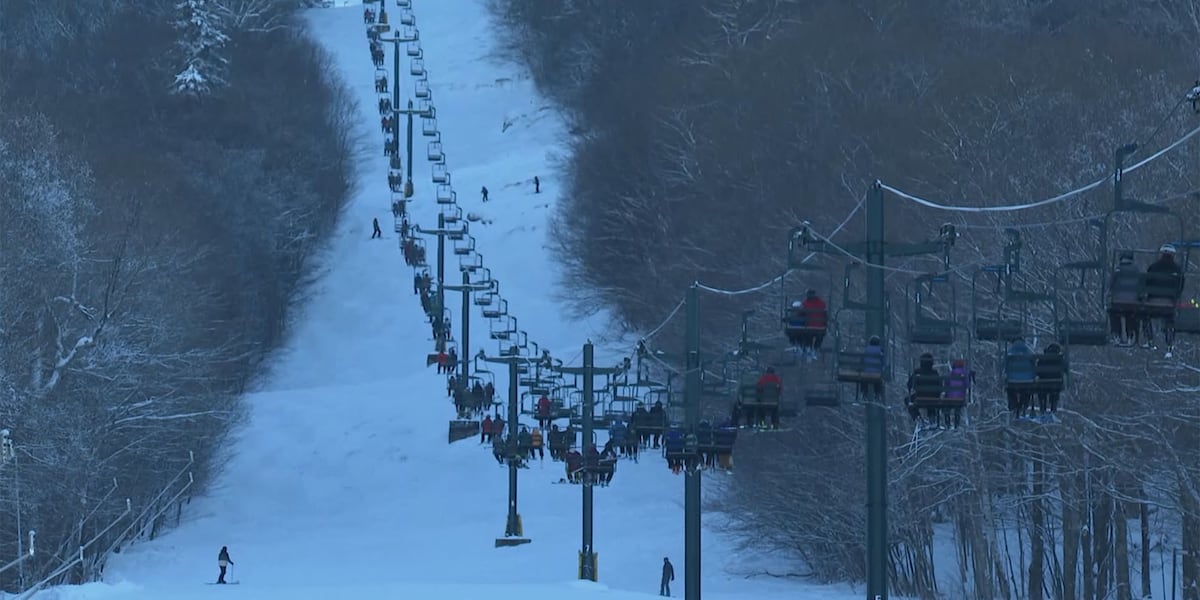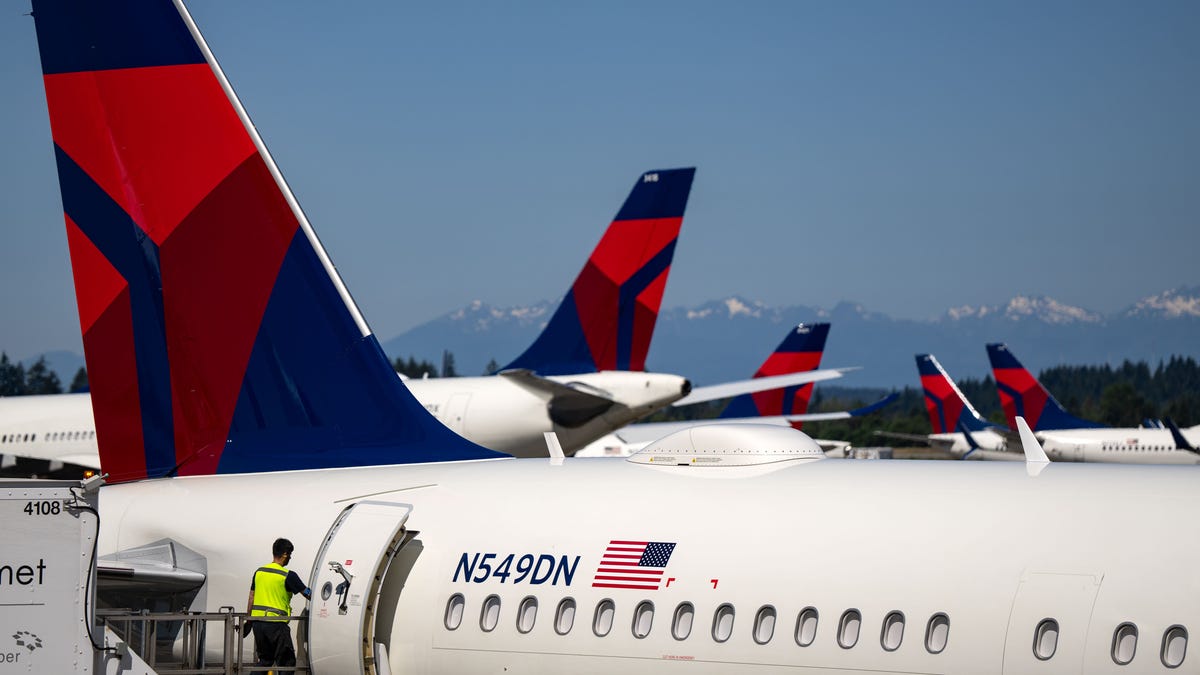World
More than 80 percent of ethnic Armenians flee Nagorno-Karabakh
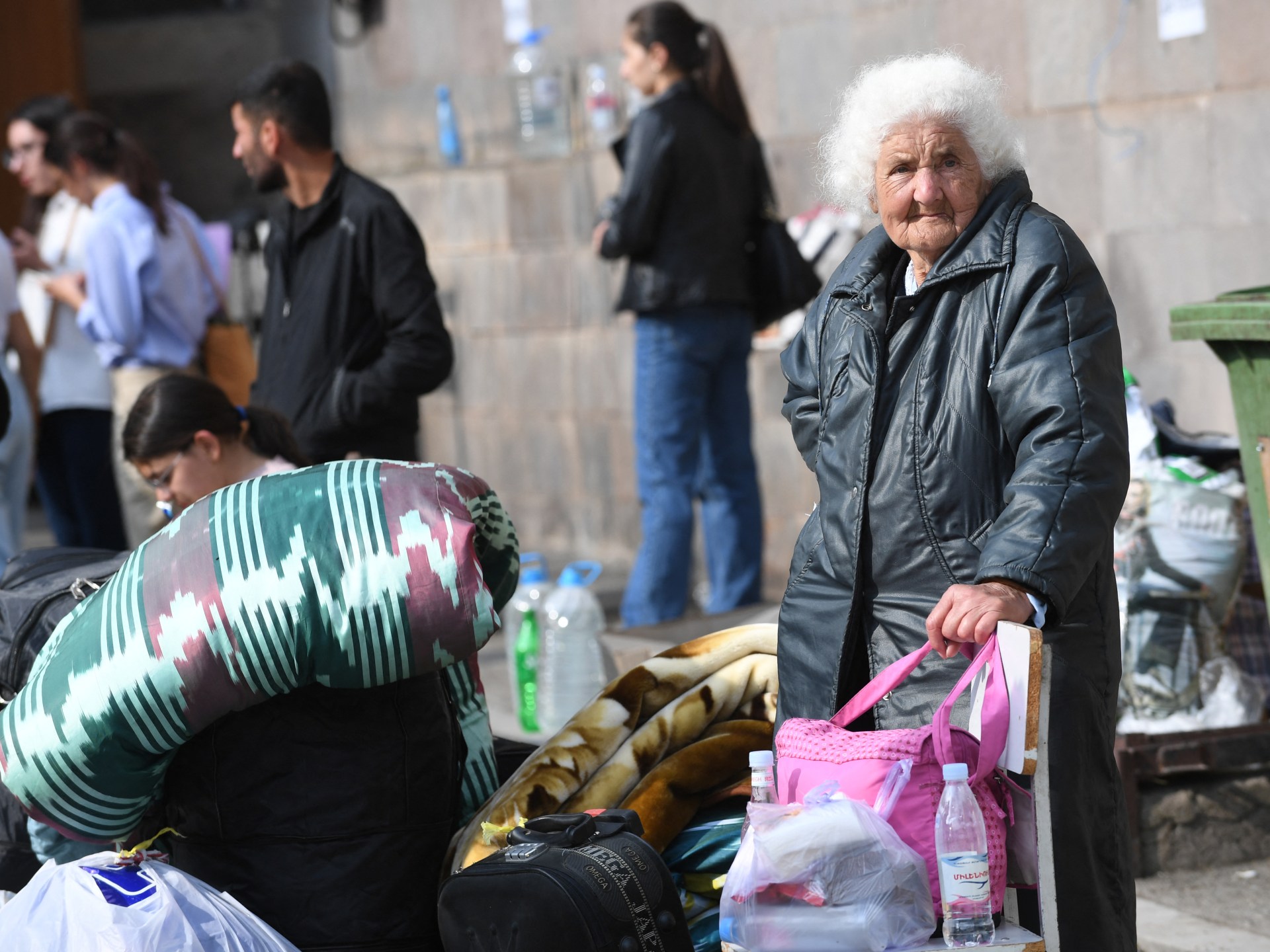
An ethnic Armenian exodus has nearly emptied Nagorno-Karabakh of residents since Azerbaijan attacked and ordered the breakaway region’s fighter groups to disarm, the Armenian government has said.
Nazeli Baghdasaryan, the press secretary to Armenian Prime Minister Nikol Pashinyan, said on Saturday that 100,417 people had arrived in Armenia from Nagorno-Karabakh, which had a population of approximately 120,000 before Azerbaijan reclaimed the region in a lightning offensive last week.
A total of 21,043 vehicles have crossed the Hakari Bridge, which links Armenia to Nagorno-Karabakh, since last week, Baghdasaryan said. Some lined up for days because the winding mountain road that is the only route to Armenia became jammed.
“The speed of it has caught everyone, including the Armenian authorities and the UN by surprise,” said Al Jazeera’s Bernard Smith.
The departure of more than 80 percent of Nagorno-Karabakh’s population raises questions about Azerbaijan’s plans for the enclave that was internationally recognised as part of its territory.
“[In Nagorno-Karabakh] we’re seeing scenes of eerie silence, empty streets, empty shops, and vacant homes,” said Al Jazeera’s Osama Bin Javaid, reporting from Horadiz. “Just a fraction of the population remains in this enclave where people have been assured that they will not be persecuted by Azerbaijani forces as they take control of these areas.”
The region’s separatist ethnic Armenian government said Thursday it would dissolve itself by the end of the year after a three-decade bid for independence.
‘Ethnic cleansing’
Pashinyan has alleged the ethnic Armenian exodus amounted to “a direct act of an ethnic cleansing and depriving people of their motherland”.
Azerbaijan’s Ministry of Foreign Affairs strongly rejected the characterisation, saying the mass migration by the region’s residents was “their personal and individual decision and has nothing to do with forced relocation”.
However, Luis Moreno Ocampo, a former ICC chief prosecutor, told Al Jazeera that it is “obvious” what is happening is ethnic cleansing, saying that “the legal description is called genocide.”
“It’s an excuse that the Azerbaijan government saying, ‘oh, [leaving] was voluntary’ after they were bombing them and were starving them to death for months,” Ocampo said.
During three decades of conflict in the region, Azerbaijan and the separatists backed by Armenia have accused each other of targeted attacks, massacres and other atrocities, leaving people on both sides deeply suspicious and fearful.
While Azerbaijan has pledged to respect the rights of ethnic Armenians in Nagorno-Karabakh, most are fleeing because they do not trust Azerbaijani authorities to treat them humanely or guarantee their language, religion and culture.
“None of the people we’ve spoken to have confidence in the Azerbaijan government’s claim that their security would be guaranteed if they decided to stay,” said Smith, Al Jazeera’s correspondent in Yerevan.
“They’re frightened because they fear, despite Azerbaijan’s assurances, they fear they will be treated as the losers and the Azerbaijanis will come in as the victors,” he said.
The office of Italy’s prime minister said on Saturday that Armenia has asked the European Union for assistance to help it deal with refugees arriving from Nagorno-Karabakh.
Years of fighting
Azerbaijan’s Ministry of Defence said later on Saturday that one of its servicemen was killed by sniper fire from Armenian forces in the border district of Kalbajar, but the alleged incident was swiftly refuted by Armenia.
Interfax news agency cited the Armenian Ministry of Defence as saying the report was incorrect, without giving further details.
After six years of separatist fighting ended in 1994 following the collapse of the Soviet Union, Nagorno-Karabakh came under the control of ethnic Armenian forces backed by Armenia. Then, during a six-week war in 2020, Azerbaijan took back parts of the region in the South Caucasus Mountains along with surrounding territory that Armenian forces had claimed earlier.
In December, Azerbaijan blocked the Lachin Corridor, the only road connecting Nagorno-Karabakh with Armenia, accusing the Armenian government of using it for illicit weapons shipments to the region’s separatist forces.
Weakened by the blockade and with Armenia’s leadership distancing itself from the conflict, ethnic Armenian forces in the region agreed to lay down arms less than 24 hours after Azerbaijan began its offensive. Talks have begun between officials in the Azerbaijani capital of Baku and Nagorno-Karabakh’s separatist authorities on “reintegrating” the region into Azerbaijan.

World
Video: South Korea’s Political Instability Deepens With New Impeachment

Lawmakers from South Korea’s governing party protested on Friday against a vote to impeach the country’s acting president, Han Duck-soo. The motion, which passed 192-0, came less than two weeks after President Yoon Suk Yeol was also ousted by the opposition in the National Assembly.
World
Man on vacation with family goes overboard on Norwegian cruise ship in Bahamas
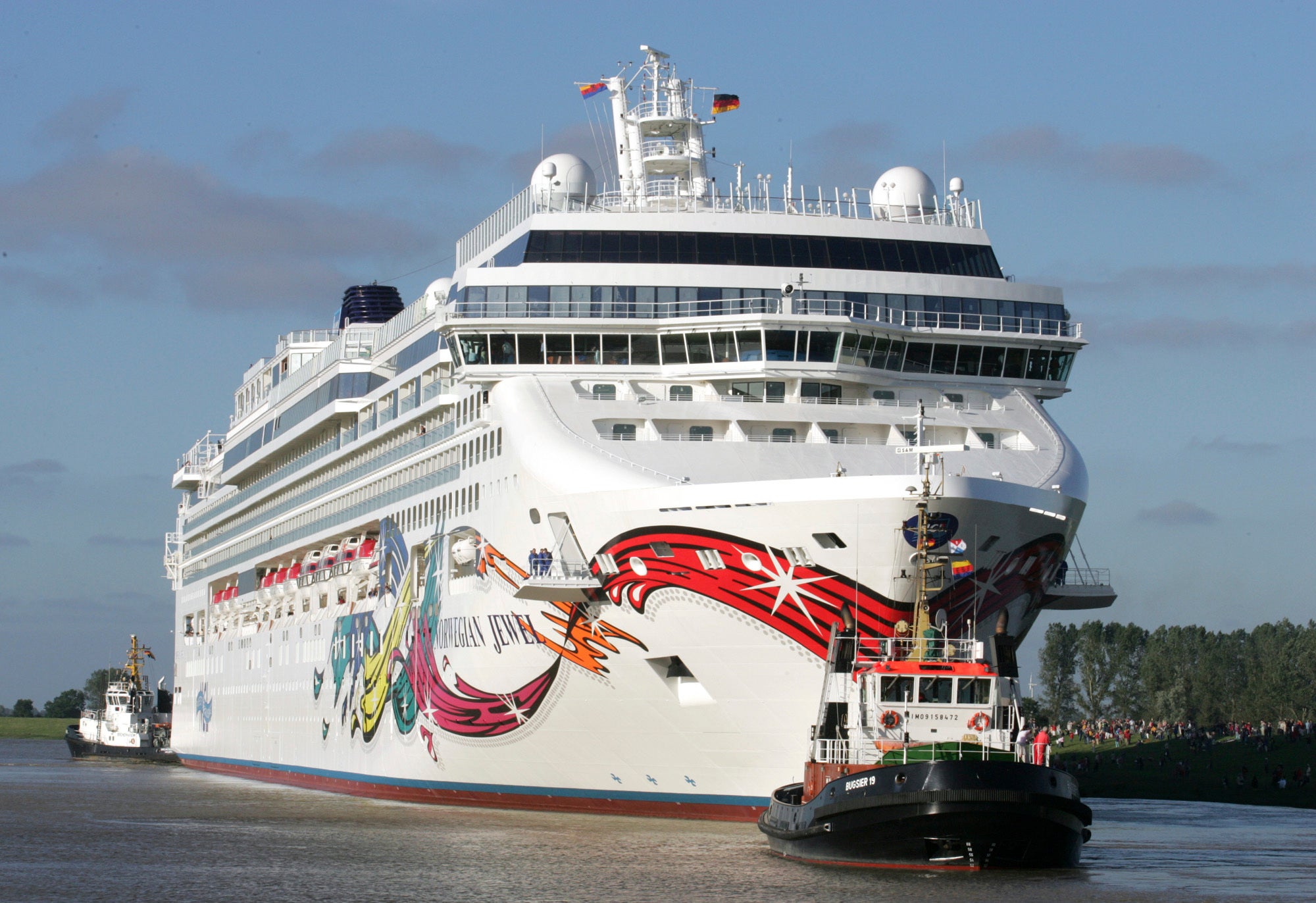
The frantic search for a Norwegian Cruise Line passenger who went overboard has been called off.
A spokesperson for the cruise line confirmed to Fox News Digital that the 51-year-old went overboard from Norwegian Cruise Line’s Norwegian Epic late Thursday afternoon.
The incident was first noted at approximately 3 p.m. as Norwegian Epic was sailing from Ocho Rios, Jamaica en route to Great Stirrup Cay in the Bahamas.
The passenger was on the cruise with his family, the spokesperson said. The cruise left from Port Canaveral, Florida on Saturday, Dec. 21 and was a seven-night Western Caribbean voyage.
DISNEY CRUISE LINE NO LONGER ACCEPTING PHOTOCOPIES OF GUEST BIRTH CERTIFICATES
The cruise liner Norwegian Jewel built at the ship yard Meyer in Papenburg, northern Germany, goes down the river Ems. (AP Photo/Joerg Sarbach, File)
The cruise line said that authorities were quickly notified and search and rescue efforts were immediately implemented.
SOCIAL MEDIA USERS GET DRAMATIC AFTER CARNIVAL CRUISE SHIP HITS ICE IN ALASKA: ‘TITANIC MOMENT’
“After an extensive search that was unfortunately unsuccessful, the ship was released by the authorities to continue its voyage,” the spokesperson said.
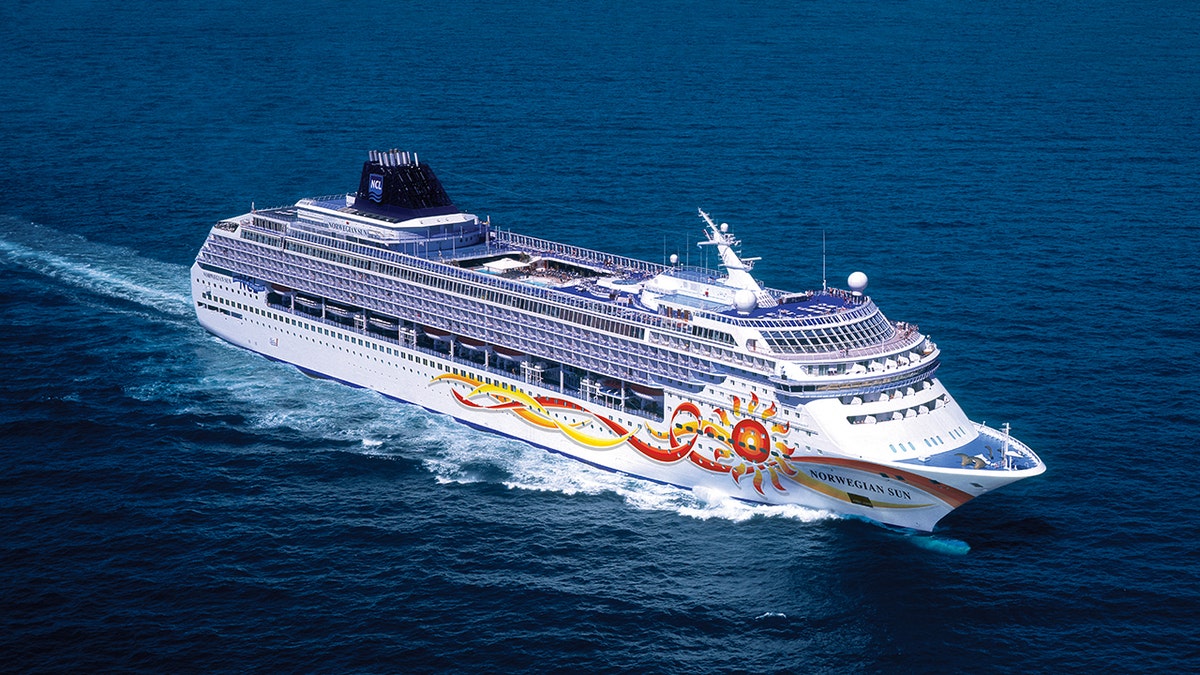
The Norwegian Epic, which was built in 2010 and refurbished in 2020, has 19 decks. (Norwegian Cruise Line)
Norwegian Cruise Line said the passenger’s loved ones on board were “being attended to and supported during this very challenging situation.”
“Our thoughts and prayers are with his loved ones during this difficult time,” the spokesperson added.
The Norwegian Epic, which was built in 2010 and refurbished in 2020, has 19 decks. It can accommodate 4,070 passengers with double occupancy of its cabins and has 1,724 crew members.
It was not immediately clear what caused the man to go overboard. The man has not been identified.
World
Olive oil, milk and cereals: How did food prices fluctuate in 2024?

After food prices soared in 2021 and 2022, over five essential food products saw price drops in 2024, including milk and cereals.
In 2024, agricultural prices in the European Union saw a modest decline, falling by 2% compared to 2023.
This price decline followed sharp increases in 2021 and 2022 that occurred due to the COVID-19 pandemic, extreme weather conditions and Russia’s invasion of Ukraine.
Despite a surge in olive oil prices in 2024, the prices of cereals dropped by 15%, eggs by 8%, and vegetables and horticultural products declined by 2%.
The price of pigs and poultry also shrank by 7% and 8%, respectively.
According to Eurostat figures, milk prices decreased in 16 EU countries in 2024.
The sharpest decline was recorded in Finland with a 12% drop in prices, followed by Portugal with 10% and Spain with 8%.
By contrast, the sharpest increase was in Ireland with a 15% rise in prices, followed by Lithuania with 11% and Latvia with 10%.
In terms of production, the cost of seeds and veterinary services rose by 3%.
However, prices for fertilisers and soil improvers plummeted by 18%, food for animals by 11%, and plant protection products and pesticides by 2%.
Commission measures between farmers and buyers
After a year in which farmers have protested regularly, the EU Commission has presented an initiative to ensure they receive fair compensation and are no longer forced to sell products below production costs.
The proposed measures include mandatory written contracts that require buyers to clearly outline key terms such as price, quantity, and delivery timelines, taking into account market conditions and cost fluctuations.
The package also introduces a regulation to enhance enforcement of the Unfair Trading Practices (UTPs) Directive, which was adopted five years ago but remains largely unimplemented.
Video editor • Mert Can Yilmaz
-
/cdn.vox-cdn.com/uploads/chorus_asset/file/24924653/236780_Google_AntiTrust_Trial_Custom_Art_CVirginia__0003_1.png)
/cdn.vox-cdn.com/uploads/chorus_asset/file/24924653/236780_Google_AntiTrust_Trial_Custom_Art_CVirginia__0003_1.png) Technology7 days ago
Technology7 days agoGoogle’s counteroffer to the government trying to break it up is unbundling Android apps
-

 News1 week ago
News1 week agoNovo Nordisk shares tumble as weight-loss drug trial data disappoints
-

 Politics1 week ago
Politics1 week agoIllegal immigrant sexually abused child in the U.S. after being removed from the country five times
-

 Entertainment1 week ago
Entertainment1 week ago'It's a little holiday gift': Inside the Weeknd's free Santa Monica show for his biggest fans
-

 Lifestyle1 week ago
Lifestyle1 week agoThink you can't dance? Get up and try these tips in our comic. We dare you!
-
/cdn.vox-cdn.com/uploads/chorus_asset/file/25672934/Metaphor_Key_Art_Horizontal.png)
/cdn.vox-cdn.com/uploads/chorus_asset/file/25672934/Metaphor_Key_Art_Horizontal.png) Technology3 days ago
Technology3 days agoThere’s a reason Metaphor: ReFantanzio’s battle music sounds as cool as it does
-

 Technology1 week ago
Technology1 week agoFox News AI Newsletter: OpenAI responds to Elon Musk's lawsuit
-

 News4 days ago
News4 days agoFrance’s new premier selects Eric Lombard as finance minister


